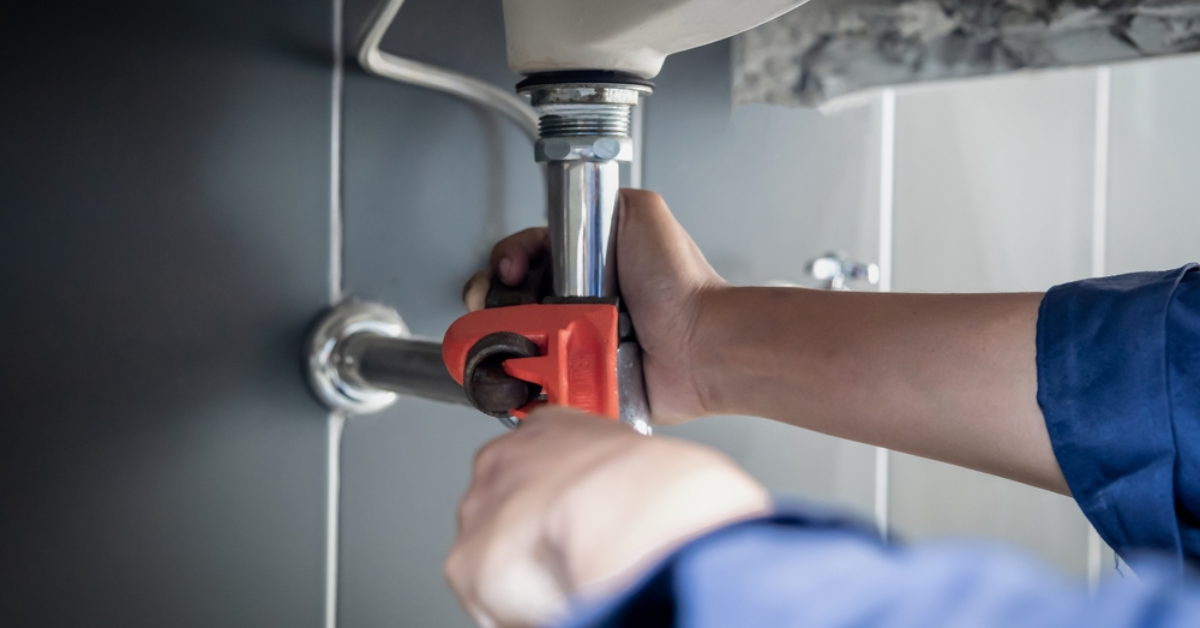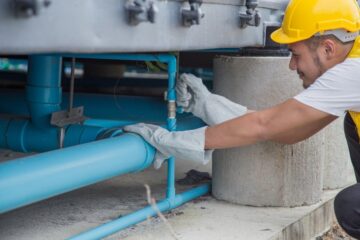Toronto’s summers bring higher temperatures and heavy rain, which can put added pressure on home plumbing systems. Taking simple steps now can prevent leaks, water damage, and plumbing emergencies during the hottest months. Homeowners often overlook their pipes, drains, and outdoor fixtures until something goes wrong.
Regular summer maintenance not only protects the home but can also save money and stress down the line. Those who aren’t comfortable tackling checks themselves can reach out to trusted plumbing contractors in Toronto for support and expert advice, getting professional help when needed. Preparing plumbing systems before summer begins is an easy way to avoid messes and keep things running smoothly.
Basic Summer Plumbing Preparations
Hot Toronto summers often lead to higher water use, but they can also reveal unseen plumbing problems. Taking care of leaks, checking sump pumps, and keeping outdoor systems in good condition can help prevent unwanted repair bills.
Inspecting for Leaks and Drips
One of the most important steps is to watch for leaks and drips. Even a small leak can waste hundreds of litres of water over the summer. Look for water stains near sinks, ceilings, toilets, and basement walls.
Check under sinks, along exposed pipes, and near water heaters for moisture or pooled water. Dripping taps or running toilets can be fixed with new washers or flappers. If a leak is found, repair it right away to stop mould and water damage.
Use a water meter reading to see if water is being lost when all fixtures are off. A change in the reading can point to a hidden leak somewhere in the system. Addressing leaks early keeps water bills lower and helps avoid bigger repairs.
Maintaining Sump Pumps and Drains
Toronto summers sometimes bring heavy rain, which can flood basements if sump pumps and drains are not in good shape. Check your sump pump by lifting the float and letting it run a short cycle. Make sure it removes water and shuts off correctly.
Clear out any debris from the sump pit, and check that the discharge pipe is not blocked. Inspect floor drains and clear away any dirt, hair, or debris blocking the covers. Pour water down seldom-used drains to keep the traps filled, which stops odours from entering the home.
Install a battery backup for the sump pump if frequent summer storms cut power in your area. Keeping pumps and drains clean and in working order gives peace of mind during storms.
Checking Outdoor Faucets and Sprinklers
Outdoor plumbing is used more in summer for gardens, lawns, and pools. Turn on outside taps and watch for leaks at the spout, handle, or pipe. Worn washers or cracked hoses should be replaced to stop leaks.
Inspect lawn sprinkler heads for clogs or misalignment, which can cause uneven watering or wasted water. Clean nozzles and check for broken parts. Set timers for early morning or evening to reduce evaporation.
If you use a garden hose, disconnect it after each use to prevent pressure on the faucet. A regular check of outdoor plumbing helps prevent water waste and keeps gardens healthy.
Protecting Pipes from Heat and Expansion
Toronto’s heat can cause pipes to expand, leading to warping, leaks, or bursts. In sunny or unshaded spots, wrap exposed pipes with foam insulation to shield them from the direct sun.
Check for pipelines that run along exterior walls or uninsulated spaces. Make sure any expansion joints are working to allow movement without damage. If you notice pipes bowing or joints becoming loose, reinforce them with supports or brackets.
Avoid flushing harsh chemicals or grease, as these can weaken pipes already stressed by heat. By protecting pipes and monitoring them during summer, homeowners prevent unexpected breaks and water damage inside and out.
Improving Water Efficiency for Hot Weather
Keeping water use low during hot summer months can save money and reduce the risk of plumbing problems. Lowering water stress also helps keep pipes and sewer lines in better condition as demand increases.
Upgrading to Water-Efficient Fixtures
Switching to water-saving fixtures can make a big difference. Low-flow showerheads, faucets, and toilets use much less water than old models. Dual-flush toilets are a good way to use less water with each flush.
Check for labels that show the fixture uses fewer litres per minute. Some homeowners may also want to install aerators on taps, which mix air with water to use less without losing pressure. Upgrading to new appliances, such as dishwashers or washing machines, can also cut water use if they have high efficiency ratings.
Making these changes can help lower the amount of water the home uses every day, especially in hot weather when people shower and use water more often.
Strategies for Reducing Water Usage
One easy way to use less water is to fix any leaks quickly. Even small drips from a tap or toilet can add up, especially over a long summer.
Take shorter showers and avoid leaving taps running when brushing teeth or washing dishes. Collect rainwater to use for garden watering. Water lawns and plants early in the morning or later in the evening to reduce evaporation during hot weather.
Running the washing machine and dishwasher only with full loads can save many litres each week. Simple routines like these can have a big impact on water bills and keep the plumbing system working better.
Managing Sewer Line Stress in Summer
In summer, sewer lines can face more strain. People are at home and using more water for things like watering lawns and filling pools. Heavy rain can also seep into older pipes, raising the risk of backups.
To lower stress on sewer lines, avoid flushing anything other than toilet paper. Keep fats, oils, and wipes out of drains. Schedule routine sewer line checks or cleaning before summer starts.
Watch for slow drains or bad smells. These can be early signs of trouble. Taking good care of sewer lines can keep them working well through even the hottest weather.
Conclusion
Getting the plumbing system ready for Toronto’s hot summer months helps prevent leaks, clogs, and costly water damage.
By checking pipes, drains, and outdoor fixtures, homeowners can help their plumbing handle extra summer use.
Simple steps such as watching for leaks, keeping drains free of debris, and scheduling seasonal maintenance can extend the life of pipes and appliances.
Regular checks save time and money in the long run. Staying prepared makes summer easier and helps keep the home running smoothly.



